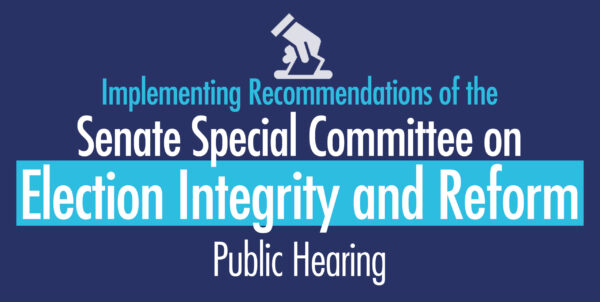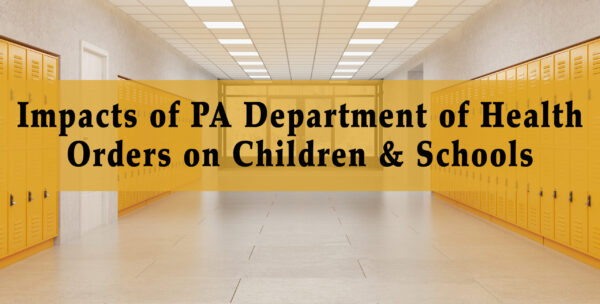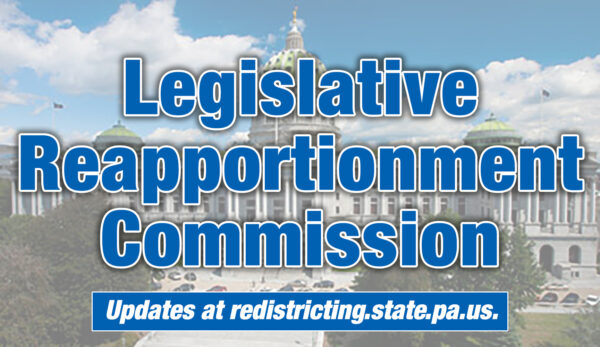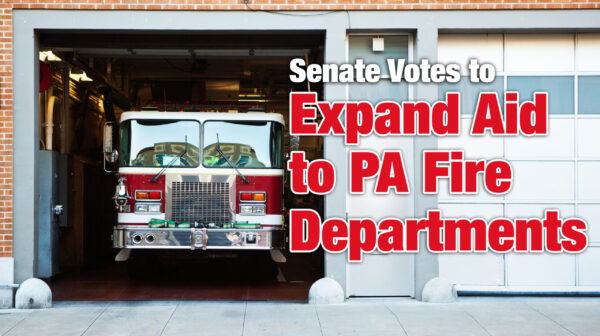
|
||||
|
In this Update:
Local Elections Officials, Advocates Testify on Bipartisan Election Reform Bill
Local elections officials and members of advocacy groups testified before the Senate State Government Committee regarding Senate Bill 878, a bipartisan election reform bill. The proposed changes originated from the bipartisan Senate Special Committee on Election Integrity and Reform, which was created to make recommendations on how Pennsylvania’s election code could be improved. The committee included members of the Senate from both parties and all regions of Pennsylvania and heard testimony from a variety of stakeholders, including election officials from Pennsylvania and other states around the nation. The proposed changes include:
The panel heard testimony from the County Commissioners Association, local elections officials Common Cause PA, the Committee of Seventy and the PA League of Women Voters. You can watch the hearing and read testimony here. Senate Hearing on School COVID Policy Reveals Ongoing Frustration with State Agencies
Saying state agencies overseeing schools are slow to respond to COVID-19 questions while providing conflicting guidance on the virus to schools, educators from all levels testified before the Senate Education Committee about their ongoing frustrations with the Wolf Administration’s oversight. The Department of Health and Department of Education declined to participate, citing pending litigation. Michael Bromirski, Lancaster County Superintendent testified that the current mask orders from the state agencies conflict with the FAQs and emails that the district has received. Dr. Barry Fillman, director of Jeff Tech, a Reynoldsville career center, testified schools are the target of frustrations from parents as “threats from the government pile on to an already intense situation.” Jessica Daugherty, Director for Lititz Christian Early Learning Center, said the communication from the state Office of Child Development and Early Learning has ranged from vague to intimidating, with threats to remove the facility employees if the young children in daycare do not comply. The Education Committee will continue to press the Wolf Administration for answers. You can view hearing video and written testimony here. Legislative Reapportionment Commission Alters Decision on Counting of Prisoners
The Legislative Reapportionment Commission made an adjustment to an earlier policy change regarding how the residency of prison inmates will be counted when developing new district maps for the state Senate and House of Representatives. At its Aug. 24 meeting, over Republican objections that the commission was exceeding its authority, the panel voted to adopt a prisoner reallocation proposal that changes the long-standing practice of having state inmates counted where they eat, sleep and live at the time of the census — like every other Pennsylvanian — and instead count them where they resided prior to incarceration for their crimes. Noting that not all currently incarcerated individuals remain in prison for less than 10 years from the time new district maps are drawn, the decision was altered by majority vote to count state prison inmates with a minimum sentence expiring after April 1, 2030, in the prison in which they reside, not the community from where they came. Senate Acts to Extend Ida State Disaster Emergency, Access to Recovery Aid
The Senate approved extending the state disaster emergency declared in response to Hurricane Ida until Oct. 27, giving Pennsylvanians more time to apply for recovery assistance. Gov. Tom Wolf issued a 21-day proclamation declaring the disaster emergency on Aug. 31. Following extended pandemic emergency declarations over the last year, and the governor’s unilateral actions throwing Pennsylvanians out of work, voters in May stripped him of the authority he commandeered to extend emergency declarations without approval of the General Assembly. Action by the General Assembly to extend the emergency declaration will help communities with their recovery efforts, which are expected to continue for the foreseeable future. The remnants of Hurricane Ida brought historic rainfall to Pennsylvania, causing record flooding and widespread damage in many places. Nearly 400 roads were closed statewide, while downed trees and limbs disrupted utilities and left more than 15 major interstates, roadways and expressways closed. Dush Bill Provides Relief for Municipalities, Government Agencies from Costly Document RequestsEarlier this week, the Senate approved legislation I’ve sponsored to provide relief for municipalities, government agencies and school boards from costly document requests. While the state’s Right to Know Law ensures that our residents have access to the public records of state and local governments as well as school boards in Pennsylvania, some choose to use the law in a way that causes an enormous burden. My bill, Senate Bill 552, would provide a framework for burdensome requests that will help municipalities, school boards and other agencies with Right to Know Law requests save not only administrative time, but also valuable resources and taxpayer dollars. The legislation allows a municipality or agency to petition the state Office of Open Records for relief from a request that the agency alleges is vexatious, which is defined in legal terms as an brought without sufficient grounds for winning and purely to cause annoyance. Within the provisions of SB552, if the executive director of the Office of Open Records, or their designee, determines that further proceedings are warranted, the executive director must pursue a resolution through mediation or a hearing. A final opinion must be issued by the office with appropriate relief that includes, but is not limited to, an order that the petitioning agency does not need to comply with future requests from the vexatious requestor for no more than one year. The legislation, which now heads to the state House of Representatives for consideration, has the support of the Pennsylvania School Boards Association, Pennsylvania State Association of Township Supervisors, and Pennsylvania Municipal League, Pennsylvania State Association to Township Commissioners, Pennsylvania State Association of Boroughs, and the County Commissioners Association of Pennsylvania. Amendment to County Code Voted Out of Local Government CommitteeThis past week the Senate Local Government Committee reported to the full Senate a bill that would amend Pennsylvania’s County Code to delay impacts of census-based county class changes. Under current law, after each census, a county’s population determines whether the county will advance in classification, or upon a sustained decrease in population over the course of two census cycles, decrease in classification according to the classification criteria in the state’s County Code. However, delays in the release of the 2020 census data and difficulties posed by the COVID-19 pandemic present administrative challenges for counties that would experience a classification change this year. House Bill 1591, as amended in my committee, would freeze classifications, while giving counties the ability to opt into a change if they so choose. The original version of HB1591 was developed by the bi-partisan, bi-cameral Local Government Commission with the assistance of the County Commissioners Association of Pennsylvania (CCAP), which supports HB1591. Senate Votes to Implement Low-Interest Loans to Fire Companies Approved by Voters
The Senate voted to implement aid to Pennsylvania fire departments approved by voters in a May referendum. The bill was sent to the House of Representatives for consideration. Senate Bill 739 would permit municipal fire departments or companies that provide services through paid personnel and emergency medical services companies to participate in the Emergency Services Loan Assistance Program, which has been historically limited to volunteer fire companies. Expanding the assistance program was one of several ballot questions decided by voters in the 2021 Primary Election. Bill Limiting Firefighter Exposure to PFAS, Safeguarding Environment Approved by Senate
A bill restricting the use of “Class B” firefighting foams containing added per- and polyfluoroalkyl substances (PFAS) for training purposes and testing was approved by the Senate. The measure now moves to the House of Representatives for consideration. Some PFAS linger in the environment and in the human body – they don’t break down and can accumulate over time. There is evidence that exposure to PFAS can lead to adverse human health effects. Senate Bill 302 would restrict the use of foam containing PFAS chemicals beginning July 1, 2022 and direct the Pennsylvania Emergency Management Agency, in consultation with the State Fire Commissioner, to assist firefighting entities with evaluating and determining how to transition to the use of Class B firefighting foam that does not contain a PFAS chemical. The legislation would not impact the continued use of firefighting foams during emergency situations. |
||||
|
||||






Want to change how you receive these emails? 2025 © Senate of Pennsylvania | https://senatordush.com | Privacy Policy |





